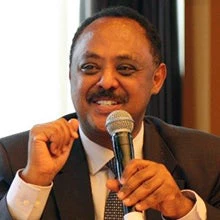We need to change the way we move. And to achieve this, we need to change the way we think, design, and finance our mobility systems.
This is the key message I took away from Transforming Transportation 2022, a virtual conference jointly hosted by my team at the World Bank Group and the WRI Ross Center for Sustainable Cities.
Over the course of two-and-a-half days, the conference featured compelling deep dives on what exactly it will take to move the world toward new practices and ideas on mobility. Around two-thousand people joined us online to find out how they can reinvent transport in their countries and communities to make it safer, greener, and more efficient.
Change How We Think
Changing the way we move begins with changing the way we think. New leadership and fresh ideas are crucial.
On that note, I was glad to see H.E. Mostafa Madbouly, Prime Minister of Egypt and Host of COP27 later this year, emphasize the impact of climate change on developing countries. “We cannot tackle the climate crisis without rethinking mobility,” he said in his remarks.
Mari Pangestu, World Bank Group Managing Director, took this point even further: “There is increasing awareness across the Asia-Pacific region that, if we don’t address climate change, it will affect our growth, our development, our productivity,” she said during a session dedicated to audiences in the Asia-Pacific region.
There was also a sense of urgency throughout the conference. The discussions made it clear that the shift toward climate-smart transport needs to happen now, before low and middle-income countries turn to private cars and urban sprawl leads to longer travel.
As most speakers emphasized, this will require a significant departure from the status quo. Monica Araya of Climate Works, for instance, noted that “The end of internal combustion engines cannot and should not be taboo anymore in our society.”
Change How We Design
As I mentioned during the conference, whether we like it or not, we are living in the era of energy transition. We must develop realistic e-mobility solutions that go beyond the hype and take into account the unique context and challenges of each country. Investors, engineers, and builders need to create roads that serve more than just cars and trucks. Roads need bike lanes, sidewalks, and dedicated lanes for mass transit vehicles. Transit needs to rely on cleaner fuels. And all systems need to prioritize safety and inclusion.
“We are just at the beginning of an electric vehicle revolution. But electrification alone is not enough. We must change how we move, and better public transportation is essential,” said Ani Dasgupta, the President and CEO of WRI.
“Two-wheelers, three-wheelers, four-wheelers all must go electric in the next four to five years. And long-distance transportation should all move towards green hydrogen,” said Amitabh Kant, CEO of the National Institution for Transforming India.
The World Bank Group’s Anna Bjerde, Vice President for Europe and Central Asia couldn’t have been clearer on this point: “We need to have investment strategies that are inclusive and decarbonized from the start,” she said.
Other speakers reiterated that message, saying that investing in the same ways will lead to the same patterns of car-centric cultures that cause air pollution, congestion, and safety problems. “There is always some money for transport, but the question is where is the money going to go,” said Stientje van Veldhoven, WRI’s Vice President and Regional Director for Europe.
After the intense dialogues earlier this month, I am feeling optimistic about our direction. We have many of the solutions we need to decarbonize transport, and they are beginning to catch on in different ways in different countries. The case for getting there has never been clearer. Now we need to build on the global momentum from COP26 and Transforming Transportation to make it happen.




Join the Conversation